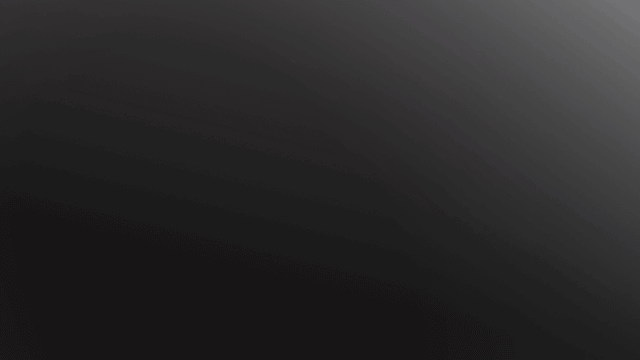"There's only snippets I can remember. Don't remember the day before, don't remember three weeks after.
"The only thing I clearly remember is the fireman who actually came and rescued me. I just have a vision of him in my face saying, 'I'll get you out'."
The moment everything changed
On a June morning in 2011, Ian Winson – then a Civil Engineer for an Auckland-based utility company – was inspecting an underground water main pipe.
In the darkness, he crouched, camera in hand. But as Ian was scouting for structural damage, an explosion erupted half a kilometre away. He and his team were caught in the barrel of a gun. "Because we were contained in a vessel," he explains, "you can just imagine this gun barrel, like this air coming out at a million miles an hour.
"I don't remember a lot, and, in a way, I think deep down it's actually a good thing I don't."
"It just picked us up and threw us out."
The force of the shockwave was so severe media would later report houses in the area shook violently, and mud and debris were thrown more than 40 metres. Ian was catapulted, tumbling through construction equipment and landed 70 meters from his inspection site.
One of his colleagues was killed instantly. Five others operating in the pit were injured.
"I don't remember a lot, and, in a way, I think deep down it's actually a good thing I don't."
"It's interesting to talk to people who rescued me. Two firemen … heard me calling and they said, 'Well if he's talking and he's calling, we should be alright'. So they [risked] their lives and came down to the pipe and got me."
Ian reflects gratefully on the moment he was rescued. He admits with a chuckle that although he was in shock, the first responders said he still tried to direct and manage the scene. "They found me, and I was telling them how to get me out. I was directing the whole show apparently. I was saying, just don't worry about me, worry about the other team, my team. I'm fine.
"And they're looking at me like, no – you're not fine."
Ian lost both his legs as a result of the explosion. He sustained multiple life-threatening physical injuries, including a brain injury. It left him close to death. And it was clear his road to recovery would be long.
The fallout from the blast
After an accident, the focus is usually the impact on the victim. But Ian says that his family have had it worse.
"I remember lying in my hospital bed going, OK – what do we do now? It's alright for me because I'm in it. I'm doing it. But the mental anguish and the emotional strain on the family is absolutely huge."
Ian describes his wife Katherine as the 'cornerstone of everything'. She helps manage his ACC and medical-related tasks, caring for him after surgeries and keeps their family home in order.
"But [after the accident] she couldn't parent the way she wanted to parent. It was this whole emotional upheaval of Katherine going, 'I should be at home looking after my boys, but I should also be at the hospital looking after my husband'"
Ian's boys Ethan and Josh, aged two and seven at the time, were also affected. "Josh was quite adult about it. And that formed a real close relationship for Katherine and Joshua.
"But poor Ethan, who was only two, he wasn't talking very well at the time… all of a sudden his life was upside down. Every day this man used to come home and throw him around like a ragdoll and everything like that. And he's gone."
Losing more than limbs
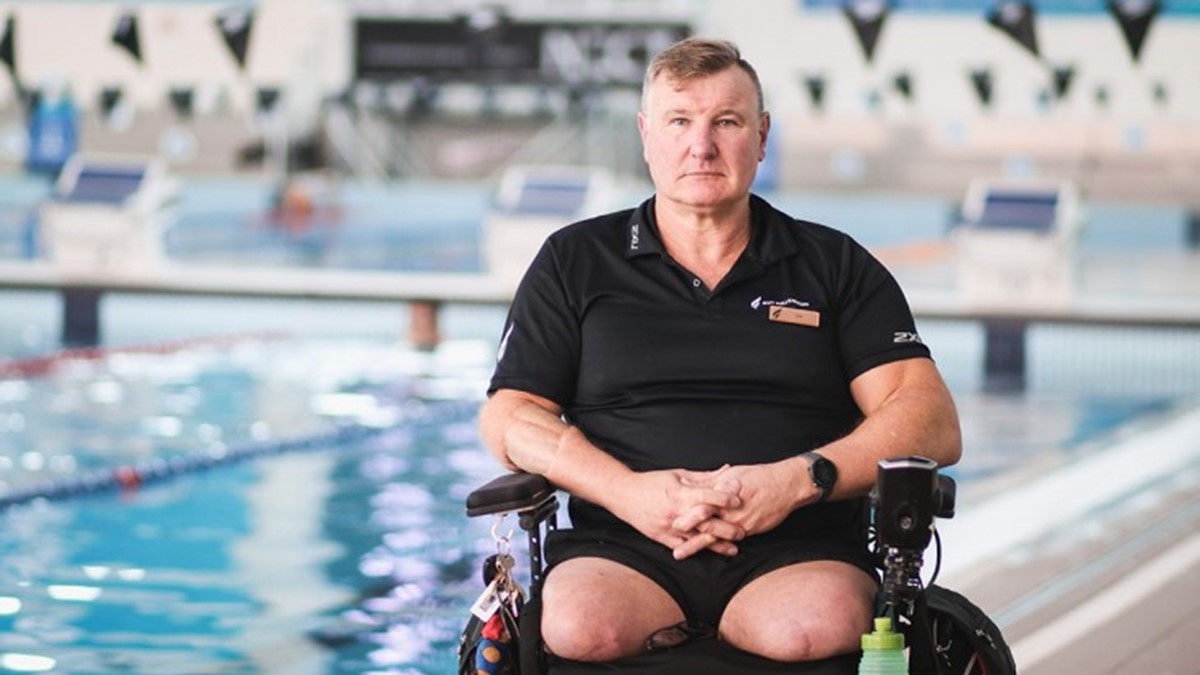
Before the accident, Ian's life revolved around two things: family and sport. Running was especially important, with Ian and Katherine involved in organising community events.
Ian beams as he discusses Josh's running talent, and how he's been working hard recently on his craft. Following a physical education class assignment to run 5k under a certain time, Ian took Josh to buy new running shoes. Josh was 'quite fired up' about it, and together they wrote a programme to help him reach his goal.
But it was a bittersweet moment. "There are lots of dads that do go out for runs with their children, and a lot of dads that don't. I wanted to be one of those dads that did."
Wiping away a tear, Ian talks of what could have been. "A lot of people don't realise that they have this body and they just don't use it. They abuse their whole engine, and they don't realise that in a split second, it can be taken away.
"When you love something as much as I loved running – when you see somebody who's doing what Josh is doing now… it's those times that I wish this accident never happened."
Not backing down
But Ian's outlook following the accident is illustrated by a story he shares about a family trip to the pools.
"One day, we went to some hot pools that had a hydroslide in it, with about three storeys of steps to get to the top. Well, it didn't stop me from getting to the top."
When Josh was a toddler, he'd ride the hydroslide on his dad's lap just like other kids.
"But it's pretty scary when you don't have legs," he laughs. Likening the loss of his legs to a boat not having a keel, he said people don't realise how much they play a part in stabilising your body. "You end up flying around like a bean!
"But it was exciting. It was a nice experience to do with Ethan. And that was determination. I'll get to the top – even if it takes fifteen minutes to climb.
"It doesn't stop me."
Freedom
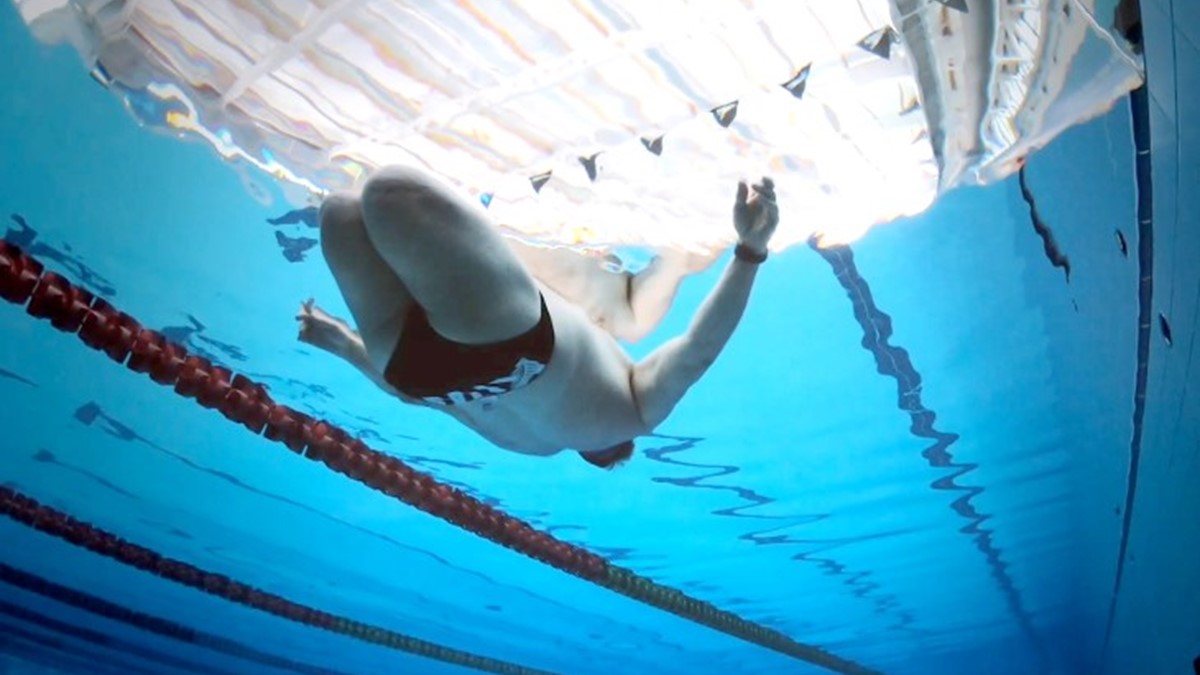
As it turns out, the water became instrumental in Ian's rehabilitation.
"The feeling in the water is a feeling of freedom. All your body weight goes off. You don't have to worry about walking. You don't have to worry about anything else other than being in the water. So it's total freedom, it's just… it's lovely.
"Once I’m in the water, I'm just like everybody else. You know. I'm safe.
"I'm buoyant, and I'm safe."
As part of Ian's recovery, ACC provided a range of supports to help get him back to everyday life. Specifically, through his rehabilitation, Ian was introduced to Para swimming. He proudly recounts his progress, noting his 50-metre swim is down to 52 seconds. And though he isn't currently competing, his drive is unrelenting, and he thinks he could do even better.
Getting physical
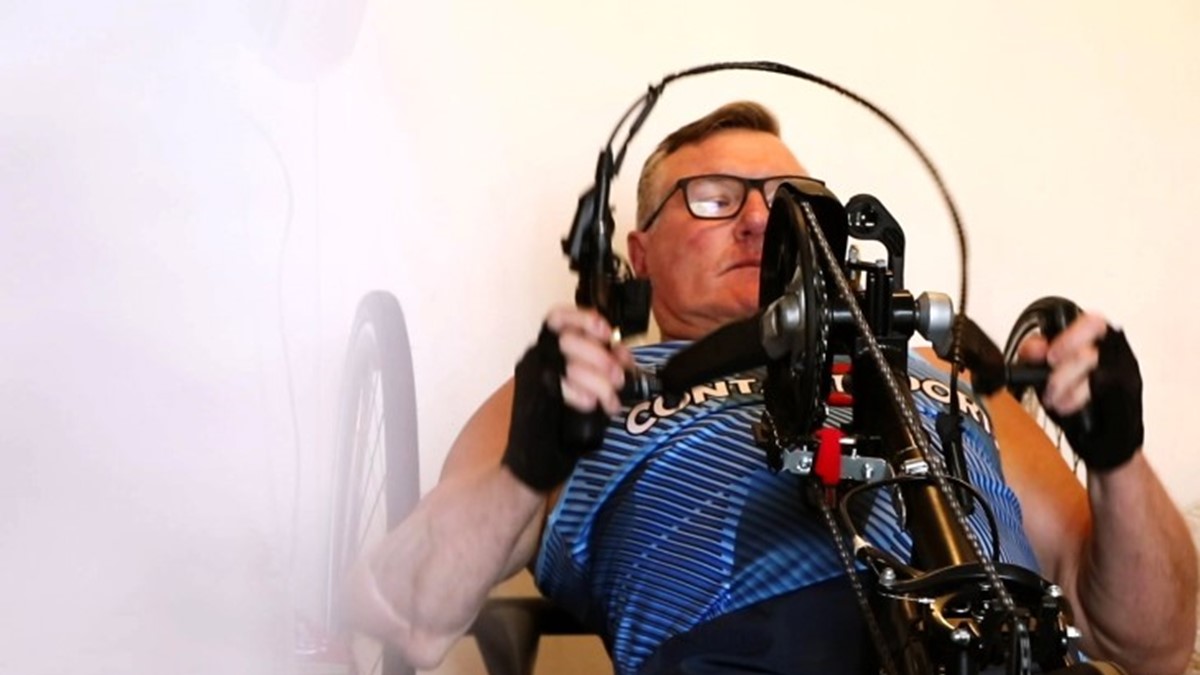
It was a chance invitation to a Para cycling camp in New Plymouth that kicked off a new chapter in Ian's journey. Though complications with his right arm threatened to derail him – he's undergone surgery on that elbow over 10 times – it all panned out in the end. This year, Ian is planning to ride the Auckland Marathon for the second time and has his sights for the future set on New York.
"There are [numerous] pathways in Para sport, and I'm going in different directions. But it's all really exciting."
Find more about Para sport in New Zealand
Giving strength to others
Ian says that in life, having purpose is a must.
"Most people have a purpose in life. And that purpose teaches other people. So my sons are learning that."
'Never Give Up', the title of Ian's biography published in 2016, perfectly captures his intent. "Contributing to life. Contributing to society. It's about me contributing and giving back. Just because you're in an accident doesn't mean that you don't go back to work. You've got to work for everything in life. But you've gotta have a purpose in life."
On advice to others going through difficult times, he suggests taking things slow. "Take one day at a time. Do what you can on that day, and then re-evaluate the next day.
"But the biggest piece of advice for anybody going through trauma or having a bad time is physical exercise. It's a stimuli to make you feel good about yourself. Get that heart rate going, and get those endorphins moving around your body. Because physical exercise… it has actually saved me.
"There's only so much Netflix and sport you can watch. You've gotta actually open the door and go outside and do something."
This story was first published on ACC Newsroom.
Ian Winson is a father, a husband, a Para athlete, and has recently started a new career as a swim coach. We'd like to sincerely thank Ian and his family for sharing their story with us.
We'd also like to thank AUT Millennium and BodyTech Gym for permission to film on location. We're a Community Partner of Paralympics New Zealand and encourage participation in Para sport at all levels.
ACC helps over 2 million New Zealanders a year recover from injury. And we invest in injury prevention programmes to help people stay safe.




